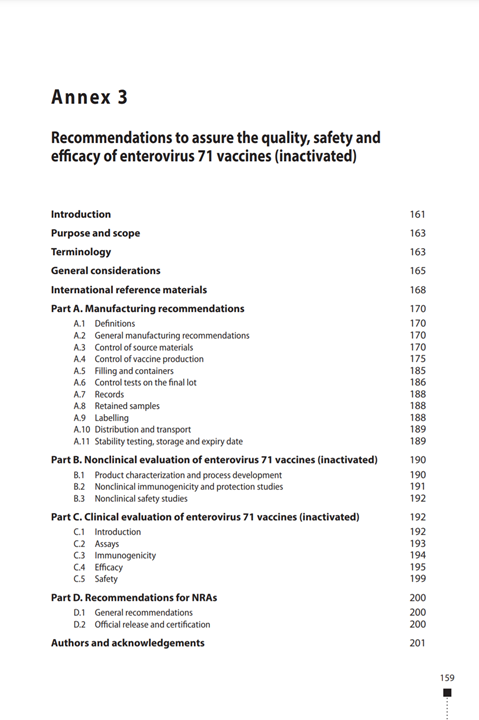Recommendations to assure the quality, safety and efficacy of enterovirus 71 vaccines (inactivated), Annex 3, TRS No 1030

Overview
The WHO Expert Committee on Biological Standardization discussed the EV71 situation at its 67th meeting in 2016 and considered it to be of major regional significance. Following requests from regulators and other stakeholders for WHO to develop recommendations to assure the quality, safety and efficacy of EV71 vaccines, a series of meetings was convened by WHO to review the current status of their development and licensure. These meetings were attended by experts from around the world involved in the research, manufacture, regulatory assessment and approval, and control testing and release of EV71 vaccines. The recommendations provided in the current document for the production, quality control and evaluation of inactivated EV71 vaccines have been based upon the experiences
gained during the development and production of the first three licensed EV71 vaccines in China, the candidate EV71 vaccines now under development and other inactivated viral vaccines, such as inactivated poliomyelitis vaccines (IPVs) and hepatitis A vaccines.
The guidance applies to EV71 vaccines prepared by the inactivation of whole EV71 virus for prophylactic use, grown in mammalian cells in culture, and using formaldehyde or other chemical inactivation procedures. The document does not cover recombinant and other forms of subunit vaccines, vectored vaccines, virus-like particle vaccines or bivalent EV71-CA16 vaccines, which are at an early stage of development.
Full version of WHO Technical Report Series No. 1030
